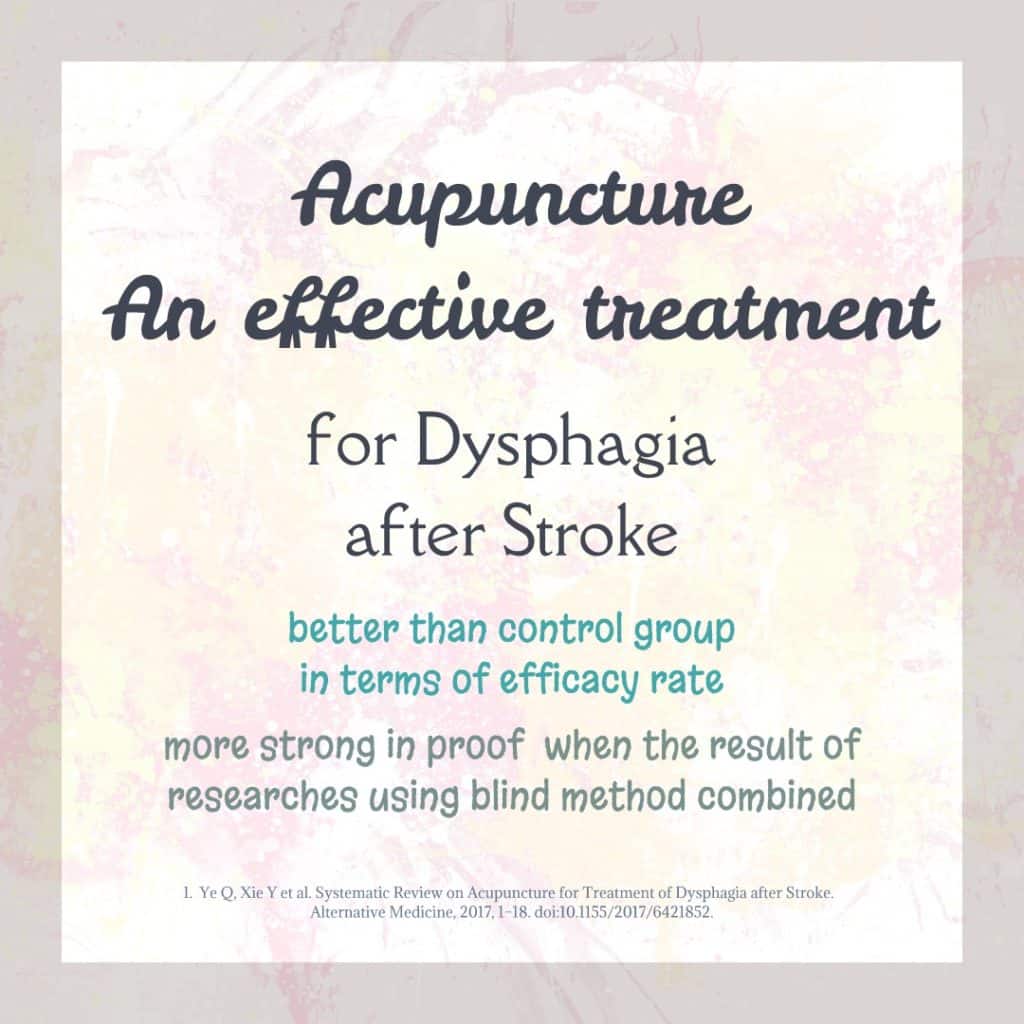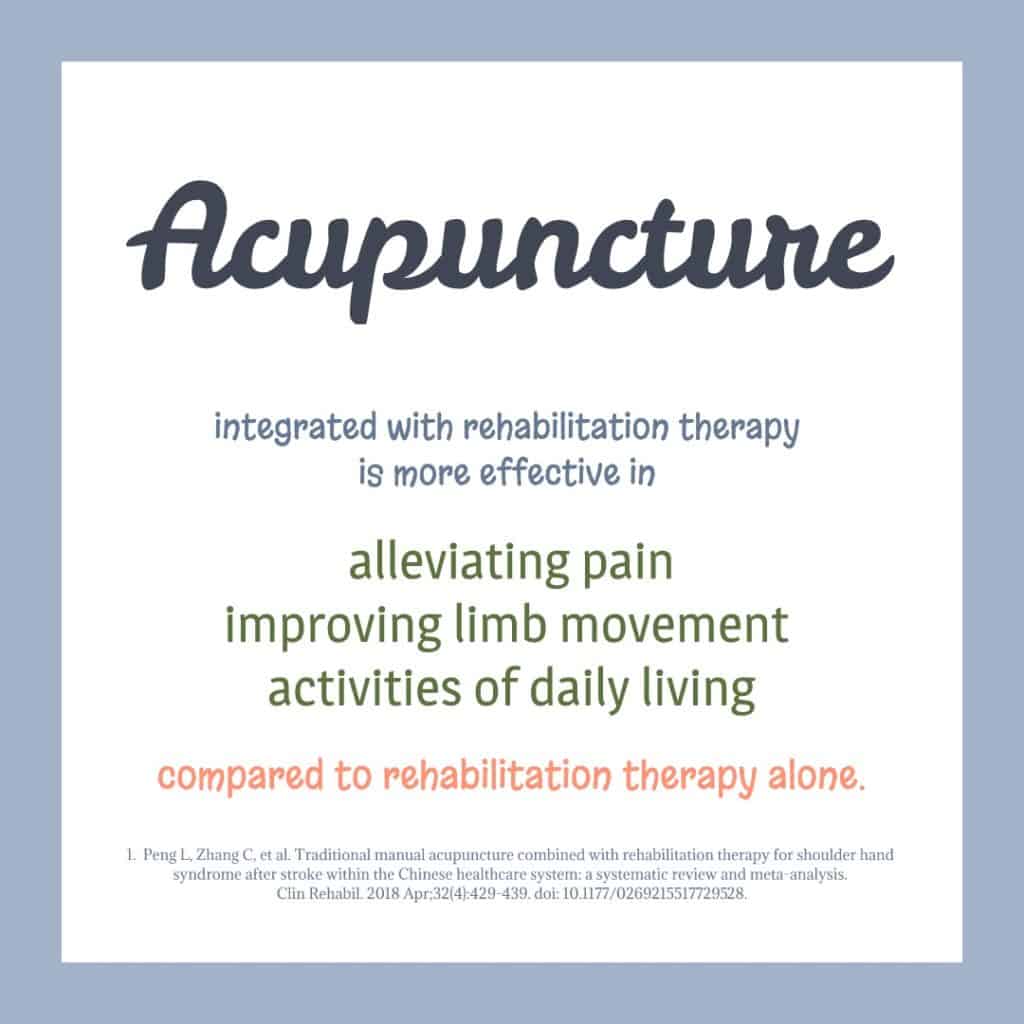Acupuncture for Dysphagia after Stroke

Systematic Review on Acupuncture for Treatment of Dysphagia after Stroke.
Objective: To assess the therapeutic efficacy of acupuncture for dysphagia after stroke.
Methods: Seven electronic databases were searched from their inception until 31 September 2016. All randomized controlled trials (RCTs) incorporating acupuncture or acupuncture combined with other interventions for treatment of dysphagia after stroke were enrolled. Then they were extracted
and assessed by two independent evaluators. Direct comparisons were conducted in RevMan 5.3.0 software.
Results: 6010 patients of 71 papers were included. The pooled analysis of efficacy rate of 58 studies indicated that acupuncture group was superior to the control group with moderate heterogeneity (RR = 1.17, 95% CI: 1.13 1.21, 𝑍 = 9.08, and 𝑃 < 0.00001); meta-analysis of the studies using blind method showed that the efficacy rate of acupuncture group was 3.01 times that of control group with no heterogeneity (RR = 3.01, 95% CI: 1.95 4.65, 𝑍 = 4.97, and 𝑃 < 0.00001). Only 13 studies mentioned the safety evaluation.
Conclusion: The result showed that the acupuncture group was better than control group in terms of efficacy rate of dysphagia after stroke. And the combining result of those researches using blind method was more strong in proof. Strict evaluation standard and high-quality RCT design are necessary for further exploration.

